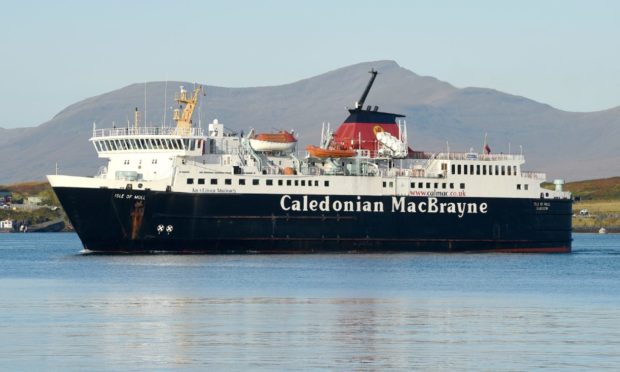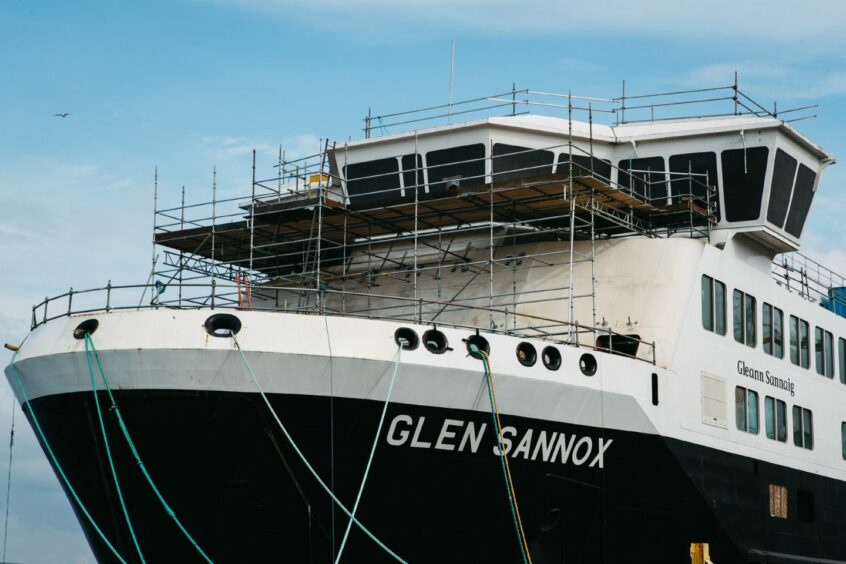Ferry operator CalMac has responded to concerns raised by west coast islanders who have been impacted by ferry disruption over the last few months.
Several factors have led to a drop in reliable services from mainland Scotland to islands on the west coast.
These include Covid-19 measures, violent storms and the operator’s ageing fleet.
Every time there is a suspected case on a CalMac ferry, the vessel needs to undergo a deep clean before sailing.
In November 2021, Storm Arwen led to widespread travel chaos across Scotland, with the majority of ferry services were cancelled due to violent winds and waves.
An issue that has plagued CalMac for the last few years is its ageing fleet, with several vessels operating past their suggested lifespan to sure up services.
Delays in the arrival of the new ferries have also impacted other services that require a high level of maintenance to operate frequent journeys.
It was revealed this week that around 36km of cables on the new ferries, being built at Ferguson Marine, needed replacing due to a fault.
Also this week, Western Isles Council accused senior management at CalMac of hiding away from public concerns regarding failures to communicate with residents who are affected.
CalMac have since responded with managing director, Robbie Drummond, saying they were “experiencing a really challenging period just now”.
He also said that getting ferries working is the company’s “absolute priority”.
Several vessels which require urgent repairs are being worked on by engineers before others come in for their annual overhaul.
‘Communities we serve rely on these lifeline services and our utmost priority is getting ferries working.’
One vessel, MV Clansman, was found to have a substantial amount of emergent steelwork. It has delayed the vessel’s return to service by three weeks.
Mr Drummond also cited other factors as hindering CalMac’s services. He said: “A prolonged period of very poor weather has been prevalent across the network over the last few weeks.
“Operating on the edge of the North Atlantic basin means that we are exposed to some of the worst weather and sea conditions in the UK.
“Our masters are experienced in assessing weather conditions, and in some cases, they have reported conditions the likes of which we have not experienced for many years.
“At times, this has made sailings impossible – the safety of our customers and our seafaring crew must come first.
“Although the effect of Covid-19 on staff has eased since December, it is still having an impact on some of our services.
“Together, these factors are creating a challenging picture for our customers and CalMac.
“It is very upsetting that some communities have been without a ferry service for several days and the impact this can have on lives and livelihoods is at the forefront of our minds and the decisions we need to make.”
“We are working closely with local communities to ensure their priorities are understood and supported.
“Our frontline staff are talking every day to regular customers to make sure that essential goods and services are being moved.
“We understand how much our customers and the communities we serve rely on these lifeline services and our utmost priority is getting ferries working as they should be at what is a really difficult time for our communities.”

